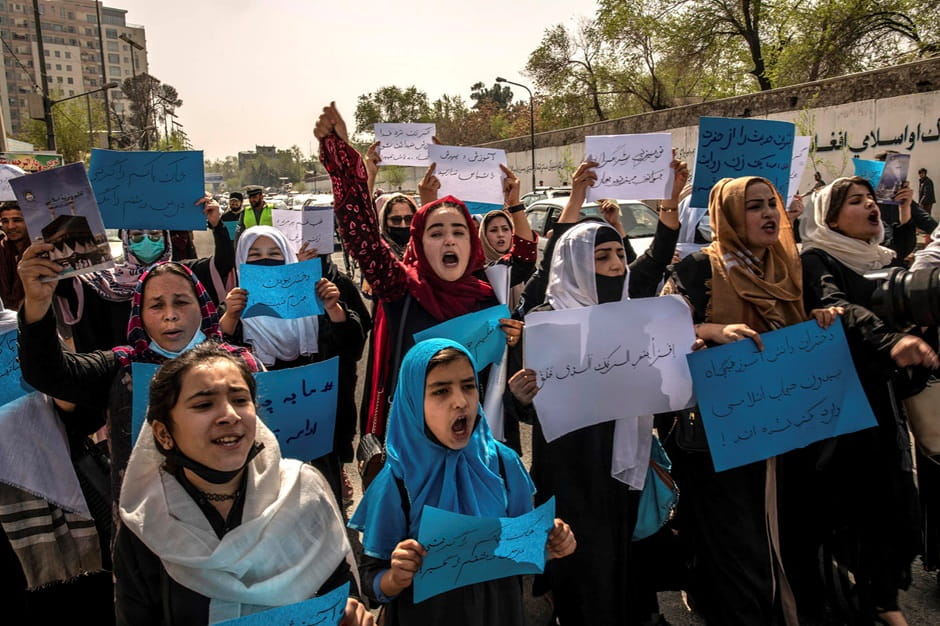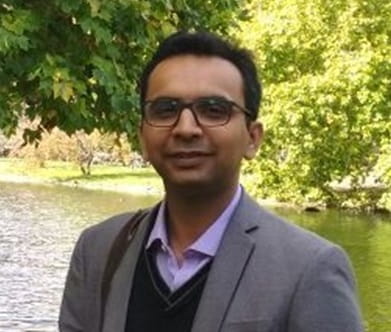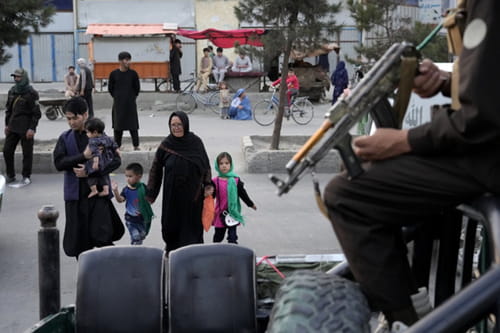
Girls and Women protest against the Talibs Source: New York Times

With the Taliban's control of Afghanistan nearing its three-year mark, the world is still grappling with how to address the regime. The withdrawal of western coalition forces and the alleged intelligence failure in assessing the sustainability of the previous government in Afghanistan have become topics of debate amidst the upcoming Presidential elections in America. Additionally, it was surprising that none of the neighbouring countries had a policy in place for such a situation. China's involvement with the Taliban and intelligence activities in Kabul set it apart as a possible exception. Pakistan, once considered a patron of the Taliban, seems to have miscalculated their level of astuteness.
In contrast, the Taliban, which emerged from the anarchy that spread during the Afghan civil war in the 90s, had enough time to reconsider their past mistakes during the 1996-2001 regime and get themselves ready for their second turn. According to Abdul Kabir, the deputy Prime Minister of the Taliban, in July 2023, the world is obligated to engage with them since they are the only ones to negotiate with from the Afghan side.[i]
The acceptance of an inadvertent reality is being embraced by the world as the UN determines that the only way forward with the Taliban is through ‘patience’ and ‘dialogue’.[ii] The Qatari Prime Minister and Foreign Minister, Sheikh Mohammad bin Abdulrahman al Thani, who’s country hosted the Taliban's political leadership and facilitated negotiations with the US, reiterated the Taliban's belief that disengagement would lead to greater chaos.[iii] The formation of policies by other countries and international organizations towards Afghanistan may be driven by this apprehension.
The Taliban, since the fall of their regime in 2001, not only engaged in battlefield conflict but also undermined political opponents by highlighting their reliance on foreign aid and corruption. Consequently, the Taliban achieved a dual victory by defeating the western coalition and weakening internal political opposition. Its previous regime did not have the same leverage. The Taliban is solidifying its grip on the country without compromising its ideological position. The regime is moving forward with a parallel incremental strategy.
Stability Through Subjugation and Coercion
Upon taking power in August 2021, the Taliban swiftly prioritized stabilising their regime through subjugation and coercion. Initially, amnesty was declared for anyone from the previous republic government who surrendered to the regime.[iv] It has used force to quell opposition, such as a military operation in Panjshir valley. The primary focus of the Taliban's budget in the first two years of their rule is on their defence and interior ministry.[v] The Taliban used this time to regroup, rearm, and establish a regularised force by acquiring leftover weapons from the Afghan National Forces and coalition forces.[vi]
On their second anniversary in power, the Taliban Spokesperson announced that the entire country is now being managed under the leadership of Taliban Chief Haibtullah Akhundzada.[vii] In a gradual manner, Akhundzada started announcing decrees to govern people's social lives based on Taliban's understanding of Islamic Law. The Attorney General's office has transformed into the Directorate of supervision and prosecution of decrees and orders.[viii] The Taliban announced decrees restricting education for women, banning political parties, and purging non-Hanafi Islamic texts from private universities. It has also initiated public executions. One positive aspect is that the Taliban successfully prohibited opium production. The Taliban prioritised religious education and is attempting to minimize the distinction between seminaries and educational institutions.[ix] In addition to following Sharia, these policies could result in isolating Afghans from other cultures and values.

Afghans under Talib Hardships Source: Associated Press
Way of Stability is Economic Independence
The Taliban could understand that earning public support requires more than just ensuring security; they must also prove their ability to deliver economic advancements. The blame for the previous government's failures fell on economic mismanagement, corruption, and an overreliance on foreign aid. Upon taking control, the Taliban prioritized trade and tax regulation and resumed work on major projects like the Qosh tapa Canal. The project expands irrigation capacity across more than 550,000 hectares.[x] The Taliban repaid a USD 627 million electricity debt to central Asian countries, possibly causing these countries to reconsider starting energy projects like CASA-1000.[xi]
Initially, the Taliban believed that signing agreements with Chinese and Qatari companies for mining, oil and gas exploration, and investments in MSMEs would attract significant investments.[xii] The security situation and the Taliban's ideological position have been obstacles for private companies looking to invest substantial amounts. Therefore, the Taliban has begun marketing its location as an attractive choice for regional connectivity projects, in the hopes of attracting investment from neighbouring governments. The projects have the potential to be implemented in peripheral regions of the country, with a lower risk factor. One of the projects involves creating a logistic hub in Eastern Afghanistan, in collaboration with Kazakhstan and Turkmenistan.[xiii] The visit to Chabahar port by the Deputy Prime Minister aimed to reduce Afghanistan's reliance on ports in Pakistan.[xiv] While the Taliban may have made some progress in reducing corruption, they are currently relying on selling raw natural resources without the necessary security and expertise.
Archetypical Governance Model
A large portion of the Taliban leadership leading the institutions either have a background in the previous Taliban regime or were part of the shadow government during the insurgency from 2002 to 2021. The primary goal of this regime is to prove that their sharia-based governance model is effective and superior to all others. In Afghanistan, where war and instability have persisted for over five decades, people may be willing to embrace this utopian autocratic model of governance due to the relative stability offered by former insurgents who now rule. However, over time, the Taliban will likely transition to a stricter and more suppressive form of governance. Concerned about the creation of parallel mechanisms, the Taliban fears that the international community will bypass the non-inclusive and non-impartial regime when channelling aid to Afghanistan.[xv]
In October 2022, Zabiullah Mujahid, the Taliban Spokesperson, has declared that the constitution formation is underway, which he reiterated in November 2023[xvi]. The new constitution might mirror the 1998 Taliban constitution, given the current regime's ideological stance on various issues.[xvii] Speaking on the topic of Osama Bin Laden in July 2023, Abdul Kabir highlighted the significance of preserving the honour of Muslims in Islamic history by not surrendering them to non-Muslims.[xviii] The code of conduct of the Taliban guided this collective decision, it is likely that the Taliban will faithfully abide by it this time around.
An Ideological Expansion
The Taliban is reorganising to govern Afghanistan according to its sharia-based model. As they do so, the Taliban is urging for recognition. The potential ideological expansion of this model is a concern for regional states. The Taliban relies on a strategy of coercion and denial to accomplish its short- and long-term objectives. For example, Pakistan is being pressured by the Taliban to enter into a peace deal with Tehreek-Taliban Pakistan. Al-Qaeda members and leaders from various terrorist organisations are playing important roles within the Taliban government.[xix] With years of experience fighting insurgency, the Taliban forces have become more organized and better equipped. The country's seminaries are churning out a greater number of extremist individuals with ideological orientations. The regime is desperate for survival and success. The vulnerability of this regime lies in its potential to be exploited by other powers for larger geopolitical gains. Following the recent episode of Islamic State's growing influence, there have been reports of people from India and regional countries journeying to Afghanistan in order to join the ISKP.[xx] Without a united approach or the country turning into a closed pariah state similar to North Korea, regional countries will find it difficult to safeguard their borders against threats originating from Afghanistan.
(Exclusive to NatStrat)
Endnotes: